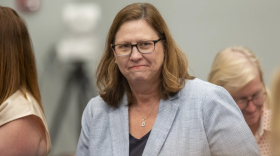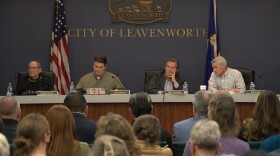Oklahoma tribal nations contributed more to the state's economy in fiscal year 2023 than in any previous recorded year, according to a study released on Wednesday.
Tribes directly contributed $12.7 billion to the state's production of goods and services, supported almost 140,000 jobs, and employed 55,659 workers, according to the study. Multiplier effects, which include additional economic impacts, increase production influence to $23.4 billion.
According to the report, tribes spent $582 million on healthcare services in Oklahoma, provided $351 million for education and generated $7.4 billion in gaming revenue.
Kyle Dean, professor of economics at Oklahoma City University and director of the Center for Native American and Urban Studies, authored the study. He also conducted similar studies for fiscal years 2011, 2017 and 2019. He said the economic impact increased by $4.9 billion since 2019, a 27% increase.
Dean said the fiscal year 2023 results show tribes are reliable contributors to the state through the creation of infrastructure, jobs and services for both tribal and non-tribal citizens.
"In Oklahoma, we have the advantage that these tribes are located where they're located because of federal treaties," Dean said. "So if your tribe is in the local community, the tribal impact is going to continue in that local community … it's a great benefit to the communities around the state."
Nineteen federally recognized tribes participated in the study, including the state's five largest tribes.
Multiple tribal members attended an event at the Oklahoma History Center to discuss the study results. United for Oklahoma, an education initiative prioritizing tribes' impact on the state, and the Oklahoma Indian Gaming Association hosted the meeting.
Choctaw Nation Principal Chief Gary Batton encouraged state and tribal leaders to work together in supporting Oklahomans.
"That's going back to the state, that's going back to our communities," Batton said. "I want everybody to know our tribal people pay taxes, don't they? We're proud to be fellow Oklahomans."
Matthew Morgan, OIGA chairman, said Oklahomans should know the impact of tribal influence on the state's economy.
"We're doing a great job on our own for the most part. The state is doing a great job on its own and we are collaborating sometimes. But think of what we can do if that collaboration takes place all the time," Morgan said. "Anytime there's conversations that are going on about us, about our communities or about our citizens … we need to be included in those conversations because a better product will develop from those conversations."
House Democratic Leader and 2026 gubernatorial candidate Rep. Cyndi Munson, D-Oklahoma City, also attended the event. After the meeting, she released a statement celebrating the results, saying the tribes' influence was "not surprising."
"Oklahoma is stronger when we listen to and work with our tribal nations. When tribes take care of their community, they take care of everyone. They work to provide jobs and care to all Oklahomans," Munson wrote.
Chad Warmington, president and chief executive officer of the Oklahoma State Chamber, said the tribes improve the state's education, infrastructure and health care. He said he wants to continue working with them.
"When you really put pen to paper and you see a $23 billion impact, imagine what Oklahoma would be like without that. They're just such an integral part of what we do and such a huge part of what makes Oklahoma great, not just culturally, but economically as well," Warmington said. "It doesn't just stay within the tribe. It really benefits all of us."
Copyright 2025 KOSU







